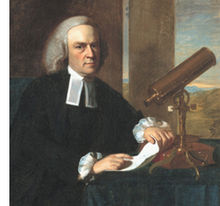Sacred Rhetoric and Political Discourse
 My previous posts for Law and Liberty examining Abraham Lincoln’s use of the Bible in the Gettysburg and Second Inaugural addresses generated interest that far exceeded my expectations (and those of the editor). These were primarily descriptive rather than critical assessments of the propriety of Lincoln’s references or allusions to Scripture in these celebrated orations. Space constraints did not allow me to explore other issues of interest to me, such as the perils of deploying religion in political—often partisan—rhetoric.
My previous posts for Law and Liberty examining Abraham Lincoln’s use of the Bible in the Gettysburg and Second Inaugural addresses generated interest that far exceeded my expectations (and those of the editor). These were primarily descriptive rather than critical assessments of the propriety of Lincoln’s references or allusions to Scripture in these celebrated orations. Space constraints did not allow me to explore other issues of interest to me, such as the perils of deploying religion in political—often partisan—rhetoric.
Authoritative texts, including sacred writings, are appealed to and cited for a variety of reasons. A study of the Bible’s use in political rhetoric, it seems to me, must be attentive to how and for what purposes Scripture is used and not merely to the fact that a political orator has referenced the Bible. Not to put too fine a point on it, not all uses of the Bible in American political discourse have been for strictly spiritual ends. Indeed, Scripture has been employed for literary, rhetorical, and political purposes. These distinctions are important insofar as it is misleading to read spiritual meaning into purely literary, rhetorical, or political uses of the Bible or vice versa.
What are some of these diverse uses? I have proposed a simple typology that accounts for Bible allusions ranging from the primarily literary and cultural to the essentially theological.[1] The Bible is used 1) to enrich a common language and cultural vocabulary through distinctively Biblical phrases, figures of speech, proverbs, aphorisms, and the like; 2) to enhance the power and weight of rhetoric through its identification with a venerated, authoritative sacred text; 3) to identify and define normative standards and transcendent rules for ordering and judging public life; and 4) to gain insights on the character and designs of God, especially as they pertain to His dealings with men and nations.[2]
This list of uses is not meant to be exhaustive. Still others, one imagines, could be added. Moreover, the lines separating these categories are, at times, fine and even indistinct, and selected uses of the Bible can be illustrative of more than one category. Nonetheless, I hope this typology offers at least tentative guidance on how to think about the place and contribution of Biblical language in political discourse.
Although less obvious, but perhaps as significant, is the use of Bible-like language; that is, phrases, figures of speech, or rhythms that resemble, imitate, or evoke the familiar scriptural texts. In the American experience, the Bible translation most frequently imitated because of its wide availability and enduring influence is the King James version. A mere resemblance to its mellifluous language and intonations infuses rhetoric with solemnity, sanctity, and authority. Such morally freighted language can be an honest rhetorical device; it can also, in the cynic’s hands, be an instrument to manipulate a pious public that venerates the Sacred Text.
The fact that political figures—from John Winthrop to George Washington to Abraham Lincoln, and even to our most recent presidents—frequently quote from and allude to the Bible reveals little about its influence on American political thought, except that Scripture has been a familiar and useful literary source. Furthermore, the fact that a political figure uses the Bible tells us little about whether or not this individual reveres it or, even, is a Christian. Some polemicists have made the error of assuming that selected politicians are committed Christians based principally on the number of Biblical citations in their speeches. Pamphleteer Thomas Paine illustrates the error of this approach. Paine made frequent allusions to the Bible in his writings, yet no figure of his generation was more famously dismissive of orthodox Christianity and its view of Scripture than he. Throughout American history, Christians and skeptics alike have utilized rhetoric informed by the Bible. Again, the important consideration is how and for what purposes the Bible is used, not simply that it is used.
The politician’s use of Biblical language and themes is often met with criticism from the religious and the nonreligious, across the board. One concern is that relying on scriptural language and themes contributes to a civil religion. A civil religion, as the term is used here, deliberately appropriates sacred language, themes, and symbols for a distinctly political purpose, such as promoting national unity or legitimizing the political regime. There may be a subtle, yet potent, unspoken claim that God has endorsed the party and arguments associated with a speaker who has invoked Biblical language. Critics decry what they regard as the misappropriation of sacred themes and symbols in political rhetoric for profane purposes. They repudiate political authorities who requisition religion in general and Scripture in particular to serve their own political ends.
More than a few commentators have described the Gettysburg Address as a hymn to, or even the Holy Writ of, American civil religion. Lincoln’s invocation of the unmistakable gospel themes of conception, birth, death, and rebirth and, in particular, his equating the sacrificial shed blood of Union soldiers with Christ’s atoning death at Calvary, have struck some critics as verging on blasphemy. Lincoln’s apparent effort to use this address to advance his partisan interpretation of the war underscores that he was invoking profoundly sacred themes in the service of a political point. Delivered on the blood-soaked battlefield, his words about these “brave men” (that is, Union soldiers) suggest that they gave their lives in this “great civil war” so that the nation might enjoy a “new birth of freedom,” just as Jesus Christ gave his life so that humanity could enjoy a new, spiritual birth and the hope of eternal life. Lincoln, of course, was not alone among Union partisans in making this analogy. (See, for example, The Battle Hymn of the Republic.)
The Second Inaugural, by contrast, strikes me as a sincere meditation on the will and ways of God in a partisan conflict in which both sides pray to the same God and solicit the same God’s assistance, and Lincoln’s rumination on this vexing question is remarkably nonpartisan. It would have been easy for him to say on this occasion, at the war’s end, that God had favored the Union side and its cause and, therefore, awarded them the victory in this terrible civil war. Remarkably, however, he said something very different. This war, he said, is the “woe” or punishment due all Americans for the sin of “American slavery”—not just Southern slavery—and, by the way, God’s punishment is true and righteous (Psalms, 19:9).
The Bible has been a prodigious source of idioms and ideas for American politicians, from the Pilgrim Fathers to the Founding Fathers and to the present day. It is an extraordinarily accessible, familiar, and authoritative text for most Americans. Not surprisingly, public figures have been drawn to the Bible in thinking about and talking about the nation’s political challenges.
Nor is the use of Biblical language always deliberate. Certain phrases and images from the King James Bible, especially, have permeated the vernacular so thoroughly that speakers recur to them without regard to their religious origins. This underscores the Bible’s historical and expansive influence on the culture.
Again, it is important to recognize a diversity of purposes here. To interpret Biblical language in political discourse as purely stylistic or rhetorical, for example, can lead to the cynical conclusion that a speaker has employed the Bible only for temporal political advantage or has used religious language, in Joseph Fornieri’s words, as “merely a political expedient to accommodate the prejudices of a Bible-reading nation.” This discounts the extent to which the Bible and Biblical precepts penetrate the core beliefs of many citizens—including public figures—and the manifold manifestations of those beliefs in both public and private utterances.
The opposite error—to read all invocations of such language as direct, literal appeals to transcendent, divine claims—ignores the nature of political rhetoric and arguably leads to an erroneous conclusion that a speaker is driven by a theocratic, even messianic, vision of America.
Some politicians, no doubt, employ Biblical language merely to excite a pious public. Sometimes Scripture is appealed to for literary, rhetorical, or political purposes; sometimes it is used to invoke the divine and the transcendent. Those who hear this language should be aware of the complexity and richness of Biblical expressions in political discourse, and endeavor to appreciate the various ways in which political orators use them.
The Bible is unlike any other written text in the canon of Western literature. For many readers, it is the “Word of God,” and that alone recommends that it be read, interpreted, and used differently from other texts. Whether or not one accepts this characterization, one cannot escape the historical fact that the Bible has a unique place in our culture, suggesting that attention be given to the reasons for and methods of asserting, perpetuating, protecting, and challenging its place in political discourse.
[1] Mark Noll and Joseph Fornieri, among other scholars, have proposed somewhat different but useful typologies. See Mark Noll, “The Bible in American Public Life, 1860-2005,” Books and Culture, September/October 2005; and Joseph R. Fornieri, Abraham Lincoln’s Political Faith (DeKalb: Northern Illinois University Press, 2003), 38.
[2] This typology is developed in Daniel L. Dreisbach, “The Bible in the Political Rhetoric of the American Founding,” Politics and Religion 4, no. 3 (2011): 401-427; Dreisbach, “The Bible and the Political Culture of the American Founding,” in Faith and the Founders of the American Republic, edited by Daniel L. Dreisbach and Mark David Hall (New York: Oxford University Press, 2014), 144-173.



